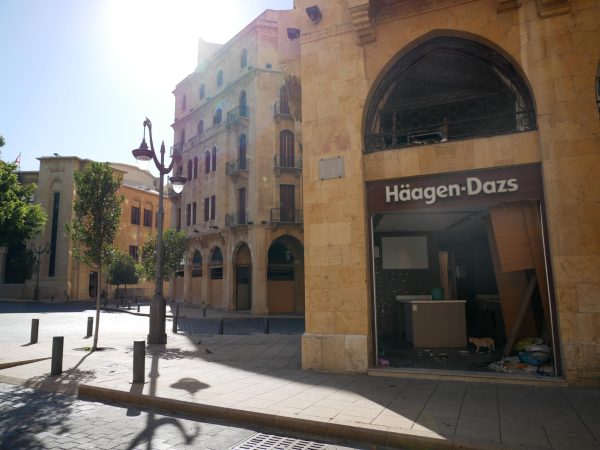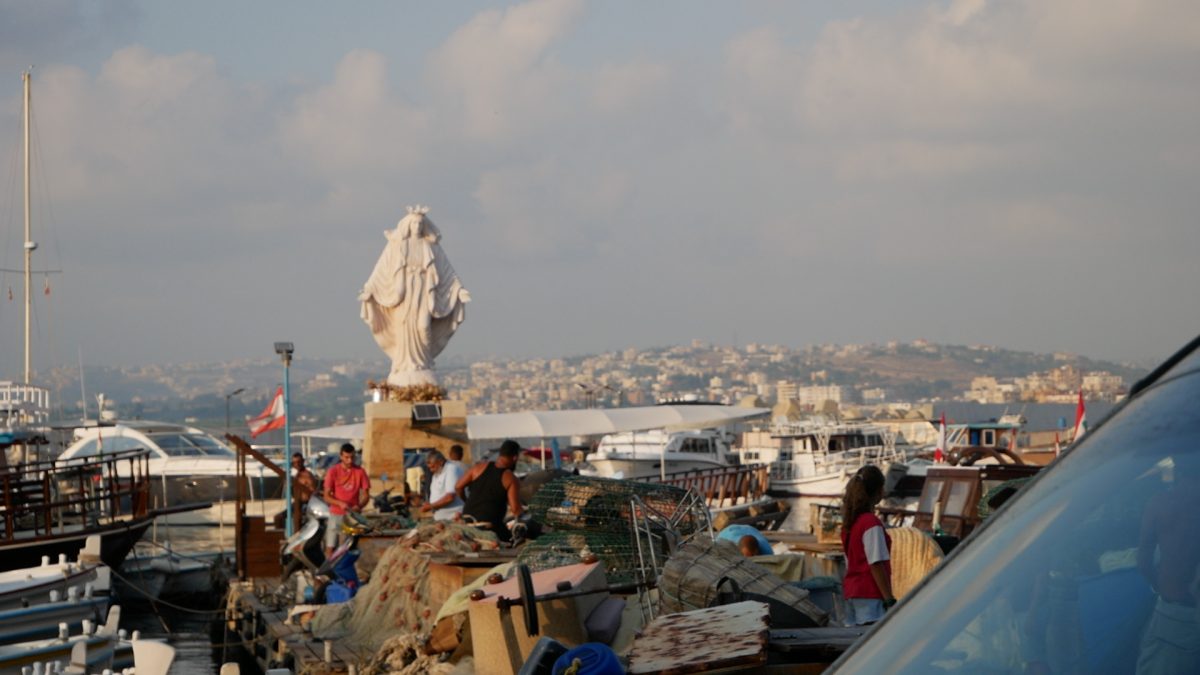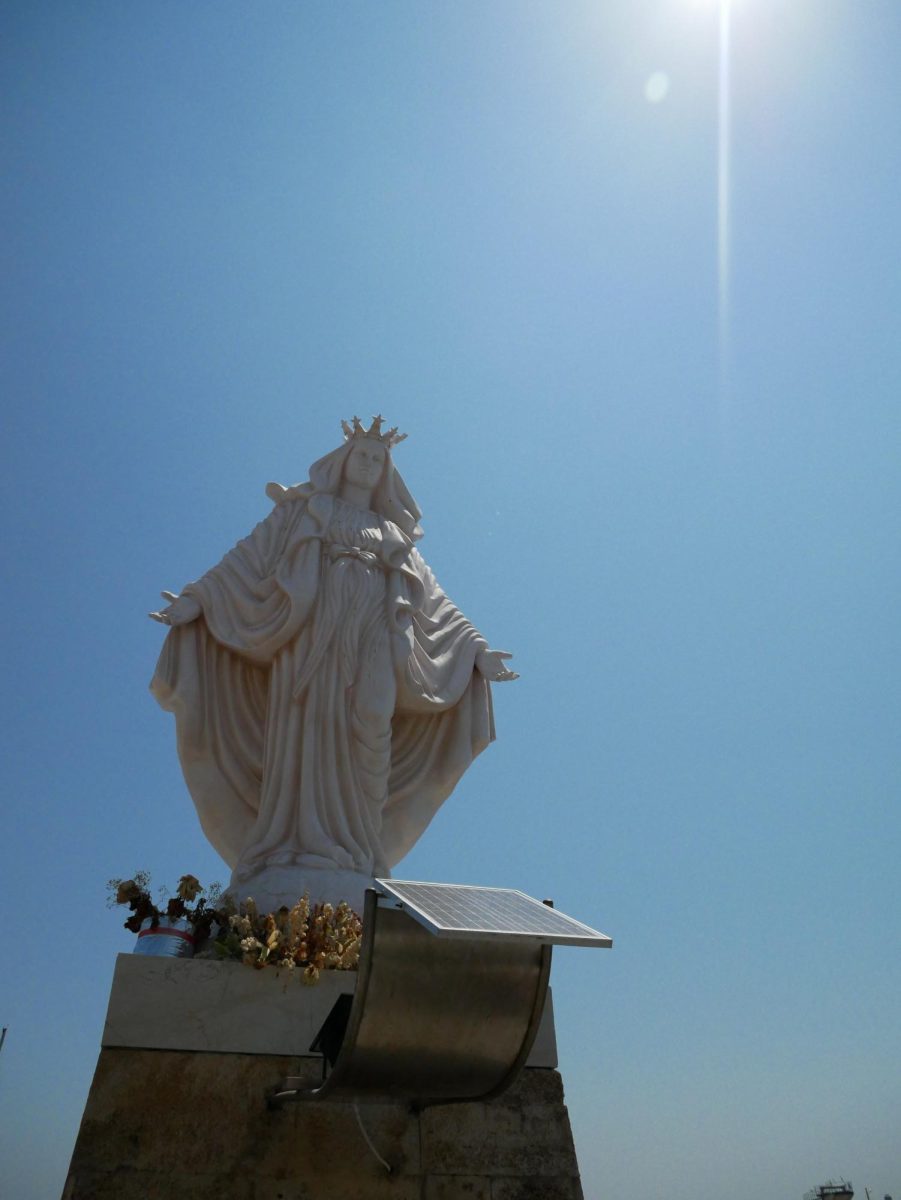Suffocating in the humidity of one summer day in Beirut, Lebanon – which I have the audacity to claim is worse than the meanest one in New York City – I sought the nearest corner store for relief. I bought a Snickers bar and a large bottle of water, and the total came out to 300,000 lira. I slipped three green bills out of my pocket, handed them to the cashier, and as I did the realization dawned on me that forty years earlier, my aunt had bought her apartment for the same price.
It is impossible to be in Lebanon right now without feeling the pervasive effects of their economic crisis at every corner. Since 2019, this crisis has caused the value of the Lebanese pound (LBP) to depreciate 98%, and the country’s GDP to contract nearly 40%.
The foundation for this crisis originated in the 1990s, as a response to two peculiar economic factors within the country. First, Lebanon is half the size and population of New Jersey, and since it is so small, the country naturally relies on imports for most of what it consumes. This, alongside the fact that Lebanon’s central bank, the Banque du Liban (BDL), decided to tie the LBP to the U.S. dollar – to stabilize it following the end of the Lebanese Civil War (1975-1990) – meant that Lebanon needed to attract dollars into the country. These dollars would empower the country’s populace to pay for exported goods, as well as become substituted by the bank for unreliable LBP to reinforce the Lebanese economy.
So, how did Lebanon attract dollars?
At first, the country’s influx of dollars was sustained by lucrative tourism and financial industries, financed mostly by foreigners, as well as through foreign aid and remittances from family abroad. Lebanon was growing quickly by this point. However, their road to recovery was cut short in 2011. Tensions in the region such as the Syrian Civil War and the growing power of the terrorist organization Hezbollah deterred foreign investors, the very basis of their economy, damaging it severely. Lebanon was forced to scheme a way to bring them back.
And scheme they did. More accurately, they pursued a Ponzi scheme. The head of the BDL decided to raise the bank’s annual interest rates up to 20% to anyone investing dollars. When compared to U.S. rates – which have historically hovered steadily just over 5% – it is clear how bizarre this figure is. And ultimately, the only way for banks to fulfill these terms was by repaying the initial depositors with money from new depositors.
In 2019, people began to realize the nature of the BPL scam, and they stopped investing money into the banks. As a result, these banks collapsed, and restricted their investors from extracting more than the equivalent of $100 a month. They also banned the Lebanese from extracting this money in dollar form. The bulk of the country was consequently thrown into poverty. 785 restaurants and cafes, along with their 25,000 employees, have lost their jobs between September 2019 and February 2020.

Outrage climaxed on October 17th, 2019, when the Lebanese government attempted to raise money by imposing taxes on gasoline, tobacco, and Whatsapp calls, which are all major staples in the country. Large and often violent protests ensued, dubbed the ’17 October Revolution.’
Issues in Lebanon only got worse in 2020. The COVID-19 pandemic hit in February, squashing the tourism industry which makes up 18% of the economy. To make things worse, Beirut, Lebanon’s capital, experienced an explosion ranked the largest non-nuclear explosion since World War II. Killing 218 people, it destroyed many thriving neighborhoods and businesses.
Implications as of 2023
Over this past summer, I had the opportunity to observe Lebanon as it grapples with recovery. Culturally, I found the country in festive abundance. Upon piercing this jovial front, I saw a country in shambles.
An obvious consequence of the banks collapsing was that most of the Lebanese no longer trust their currency or their banks. In fact, 45.7% of the country’s GDP, nearly $10 billion, has become a dollarized cash economy. The Lebanese would rather physically hold onto their money in a stable dollar form, than in the unstable lira, or LBP.
The exchange rate of the lira (in dollar terms) changes every day. Recently, this rate has hovered around 90,000:1 LBP to USD, but this value has in the past jumped more than 10,000 LBP overnight, devastating businesses around Lebanon, and confusing customers as well. To make matters more complicated, this instability is only in reference to the black market rate of the LBP. The ‘black market’ title is a major misnomer however, since this is the conversion rate the country universally practices. In fact, I can attest from experience, most Lebanese are not even aware of the official 15,000:1 LPD to USD rate that exists today.
Public services have also collapsed. The country’s only electricity grid, which is run by the state and on fossil fuels, is in financial ruin and thus cannot support more than one hour of electricity per household. Instead, the majority of Lebanese households hire generator companies in order to provide them with power. Despite the private generator industry being considered illegal by the government, and also polluting neighborhoods with toxins, as the ‘generator mafias’ are notorious for bribing government officials to stay in power. With this interim solution now ingrained in Lebanese daily life, the country cannot invest in developing more cost effective and reliable sources of energy. For context, generator mafias make over $2 billion in revenue annually, while the state’s power firm has accumulated $40 billion in debt since 1992, which astonishingly makes up 43% of the country’s total debt. This deficit will only continue to grow unless the Lebanese government decides to take a harder-line approach to this energy crisis.
In an interesting development, a few households are opting for solar energy instead, since the cost of installing solar panels has fallen steeply in recent years. The BDL has been providing low-interest loans for solar projects and many neighborhoods in Lebanon are becoming coated with solar-paneled-roofs.
Failures in Lebanese public services are not limited to energy however. The government cannot afford to collect half the country’s garbage and it is left to collect on the streets as a result. The energy crisis and the crumbling condition of state-run water infrastructure has also hindered the country from providing Lebanese households with a sufficient supply of water. Many rely on private, and very expensive, water trucking companies to deliver water instead, since the water that the state provides “comes out dirty, smells bad and is causing our children to contract diseases,” said a Lebanese nurse, Teressa Walid, if the water can be pumped out at all.
***
Beirut experienced unparalleled humidity this summer of 2023, and I distinctly remember a thick blanket of fog bleeding through the nearby mountains as my aunt offered the following insight: “The problem with Lebanon is that the country is too resilient. The Lebanese have overcome so much that when a crisis happens, they move on too quickly, never stopping to pick up the pieces.”
It is impossible to be in Lebanon right now without feeling the pervasive effects of their economic crisis at every corner. Since 2019, this crisis has caused the value of the Lebanese pound (LBP) to depreciate 98%, and the country’s GDP to contract nearly 40%.


